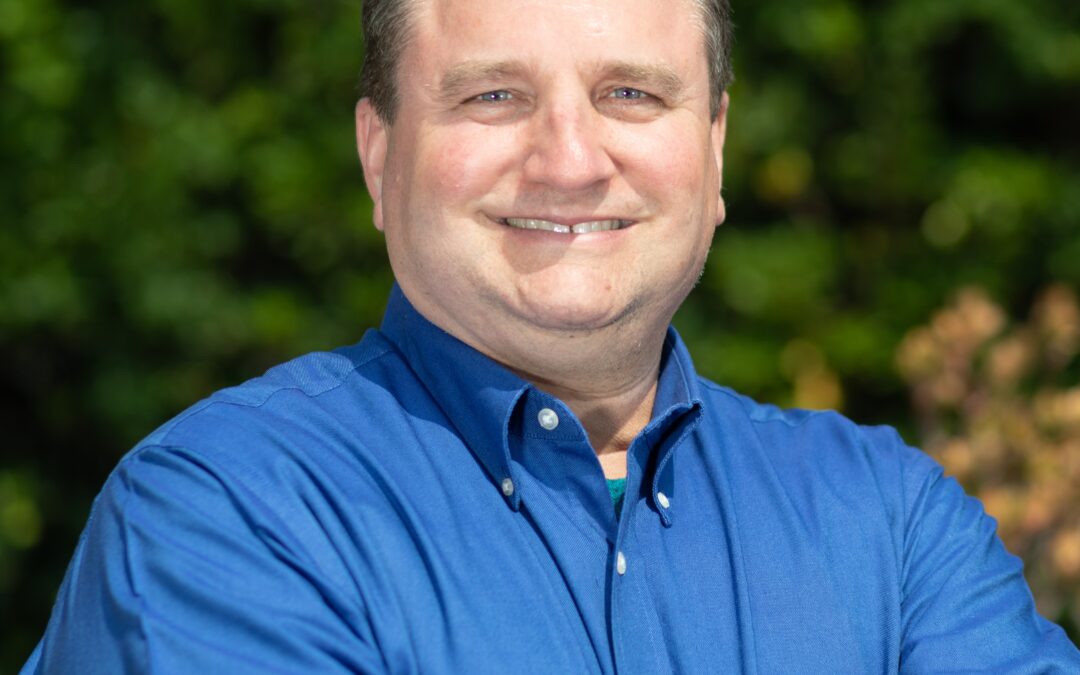I call it by a familiar set of initials: PTSD – but no, I don’t mean Post Traumatic Stress Disorder in the way most Americans think of it. Most Americans see PTSD as something which soldiers get far from home and, once back home, they can start their recovery to health.
But we have not left home. Instead, the things that result in PTSD have moved into our homes and seem to be PERPETUALLY a part of our lives now. We cannot return home to safety because we are home. Therefore, I suggest we call the malady Perpetual Traumatic Stress Disorder, the result of having to live with traumatic stress on a continuing, and seemingly never-ending, basis.
I understand, lived through, and have suffered from, Post Traumatic Stress Disorder.
 During my 5 years in Ethiopia serving as a missionary, violence was happening around me. In the place where I normally enjoyed ice cream, hand grenades marred the walls with holes and filled them with blood. A suitcase bomb at the Wabe Shebelle Hotel in Addis Ababa created rubble, gravel, and dust where I used to drink tea with my friend Mark. We were told that bandits killed foreigners on roads we were about to drive down – and then we drove down those roads because we had to get someplace, and there were no alternate, “safe” routes. A missionary who provided a ride to a politician was given a message not to do so again — his fingers were cut off, toes next, lips, tongue, eyes, ears. These things did not happen to me, but they could have, and so over time I began to live daily in a perpetual state of hyper-vigilance.
During my 5 years in Ethiopia serving as a missionary, violence was happening around me. In the place where I normally enjoyed ice cream, hand grenades marred the walls with holes and filled them with blood. A suitcase bomb at the Wabe Shebelle Hotel in Addis Ababa created rubble, gravel, and dust where I used to drink tea with my friend Mark. We were told that bandits killed foreigners on roads we were about to drive down – and then we drove down those roads because we had to get someplace, and there were no alternate, “safe” routes. A missionary who provided a ride to a politician was given a message not to do so again — his fingers were cut off, toes next, lips, tongue, eyes, ears. These things did not happen to me, but they could have, and so over time I began to live daily in a perpetual state of hyper-vigilance.
My vigilance was also prompted by daily, less dramatic threats. I slept under mosquito nets to prevent malaria. We boiled and filtered our water to prevent illness. I walked with a guard to avoid thieves. I sat strategically in restaurants to see who was coming in, what others were doing and to have an escape route. I walked strategically down the street, staying the proper distance away from buildings and noticing who crossed the street and was going to be in my path.
Finally, when I was physically safe, back in the United States, I found that I was still mentally hyper-vigilant. My mind kept imagining the next 60 seconds—what terrible thing might happen, and what I could do to protect myself and those I loved.
When I heard a gunshot, it did not matter that it was a blank on a TV show. My heart sped up. My body shot adrenaline into my bloodstream. I was ready to fight for my life, even though I was sitting in my living room in a church-provided apartment on the campus of a seminary in Louisville, Kentucky. I was completely safe. But I had no choice but to get up and walk outside. I could not stay still. It would be some time before I could watch a TV show that showed graphic violence.
Now, like you, I have lived through 18 months of a global pandemic. Are you beginning to see how similar our experiences are to the conditions that caused my original PTSD?
Today’s pandemic violence, in harsher ways, may not have touched us. Someone else died. Someone else is on the ventilator. Someone else got put in the body bag. But it could have been us. And so, we have been pushed through a million graphic and vocal reminders to be perpetually vigilant. The virus may be on the counter or in the air or in the next handshake. So “wear your mask,” “sanitize your hands,” “physical distance,” “be aware.” It all means we need to think ahead because our life and the life of our loved ones is in our hands. And each call to vigilance spikes our adrenaline, again.
There is no doubt that the pandemic is a horrendous tragedy. As I write this, in the United States alone 725,000 have died from Covid-19. Measure that against the bloodiest war in American history, the Civil War, when 620,000 died (recent estimates place the number at 750,000).
Or you can measure those 725,000 Covid deaths against all the combat deaths in all of America’s other wars: Afghanistan, Iraq, the Gulf War, Vietnam, Korea, World War II, World War I, the Spanish-American war of 1898, War with Mexico 1847, the War of 1812, and the Revolutionary War: 684,253 total deaths.
Some believe the 725,000 number is inflated, but the actual number doesn’t matter. Our body’s adrenaline system is not a counting mechanism. It’s either on or off.
In addition to the dead, there are those, among the 45 million Americans infected, who still suffer the ongoing effects of Covid. We are discovering the long-term damage that Covid is inflicting on some who have caught it and survived.
At the same time, I am no longer most worried about the pandemic, as bad as it has been and continues to be. PTSD – Perpetual Traumatic Stress Disorder — is going to impact many, many more of us, and Perpetual Traumatic Stress Disorder does not yet have the world’s attention. Go ahead, do a Google search using the word “perpetual.”
Wait, you say. You’re being alarmist. What about the ancient Persian adage, “This too shall pass,” made famous in America by President Abraham Lincoln? The pandemic may be subsiding. That is not the same as ending. For one thing, there are continuing variants of Covid, as well as millions and millions who will not, or cannot, get the protection of vaccines. (Full disclosure: my family and I are fully vaccinated.) For another, American politics is no longer a process of cooperation, however contentious, but of constant confrontation, magnified by the technology of social media. This means that the media call to alarm is unlikely to end soon. No, Covid may not go gently into that good night, nor will the media frenzy that seems to be riding on Covid’s back.
And so, just as I lived daily with the symptoms of Post Traumatic Stress Disorder after I came home from Ethiopia, more and more people are feeling daily symptoms of Perpetual Traumatic Stress Disorder, even if the worst of the pandemic seems to have subsided. And I believe there may be now or will be uncounted millions more suffering from overwhelming fear, crippling anxiety, and panic attacks that sabotage their ability to get themselves to work and to be there for their families.
Perpetual Traumatic Stress Disorder can lead us down a dark path. Some of us find ourselves losing hope, blaming ourselves or a spouse, so that our children start losing hope, as do our friends, and we stop even noticing that our neighbors are calling for help.
Covid may not disappear as a threat to our lives in the foreseeable future, and it brings with it this Perpetual Traumatic Stress Disorder as a serious threat.
Be not afraid. Clarity enables us to respond in new ways. We can learn how to live with perpetual threats without living perpetually spiked on adrenaline. It is past time for us to start prioritizing the care we need for ourselves.
There is so much we can do to prevent Perpetual Traumatic Stress Disorder from emerging in our home. We can enjoy relaxed time with each other. We can share physical hugs. Massages. Meditation. We can do thoughtful deeds. As a minister, I believe we need the love of God. All of these bring hope for the future and help our adrenal glands to stand down.
There are things we can do to stop Perpetual Trauma Stress Disorder from advancing in us and through us:
- Notice your own perpetual vigilance. Notice your adrenaline. Notice what triggers your different emotional states.
- Anxiety, depression, and panic attacks are normal results from 18 months of perpetual vigilance. You are a normal human being.
- Turn down the volume and turn off the video screen (TV, computer, and especially, smartphone) on reports that try to stir your fear, release your adrenaline, and call you to hyper-vigilance. Reading news can be informative without allowing it to manipulate us emotionally
- Ask others to stop, and stop ourselves, from conversations and social media postings, that spread fear, trigger adrenalin, and call for hyper-vigilance. There are no topics to avoid. Everything can be discussed, but it is the emotionally afflictive intent that needs moderatin
- There are medications that have long been used to help people suffering from PTSD, and your doctor and you can decide if one of those is right for you.
- Seek help from others. Friends and therapists can help.
We must recognize and treat the symptoms of what appears to be Perpetual Trauma Stress Disorder. We may not be able to stop a perpetual pandemic, nor find a place to escape it, but we can mitigate our perpetual, internal stress. Now breathe deeply. Again. Again. Again.
Rev. Dr. Jim Milley leads Bridges, a 501(c)(3) that fiscally sponsors 25 ministries in 6 states across America. Visit www.bridgesus.org







